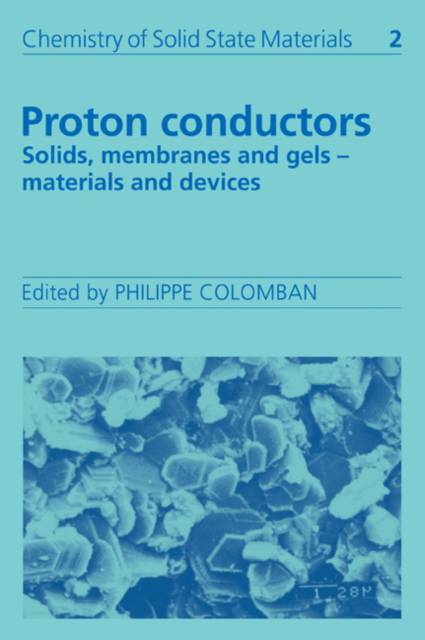
Door een staking bij bpost kan je online bestelling op dit moment iets langer onderweg zijn dan voorzien. Dringend iets nodig? Onze winkels ontvangen jou met open armen!
- Afhalen na 1 uur in een winkel met voorraad
- Gratis thuislevering in België vanaf € 30
- Ruim aanbod met 7 miljoen producten
Door een staking bij bpost kan je online bestelling op dit moment iets langer onderweg zijn dan voorzien. Dringend iets nodig? Onze winkels ontvangen jou met open armen!
- Afhalen na 1 uur in een winkel met voorraad
- Gratis thuislevering in België vanaf € 30
- Ruim aanbod met 7 miljoen producten
Zoeken
Proton Conductors
Solids, Membranes and Gels - Materials and Devices
€ 187,45
+ 374 punten
Omschrijving
The present book covers different aspects of proton conduction: the first part describes chemical and physical parameters necessary for fast proton conduction and proposes a classification of different kinds of proton conductors. Comparison is made with other hydrogen containing materials (metals, graphites). The importance of partial water pressure, the role of defects and surface phenomena are discussed. The second part treats the chemistry, structures and electrical properties of typical materials from hydrogen bronzes to polymers via ice, hydroxides, acid sulphates, layer hydrates, clays, gels and porous or fractal media. The third part discusses the methods concerning the proton dynamics from local to macroscopic scale. The fourth part deals with conductivity mechanisms and the last one presents typical applications: electrochemical systems for production or energy storage and microionic devices.
Specificaties
Betrokkenen
- Uitgeverij:
Inhoud
- Aantal bladzijden:
- 616
- Taal:
- Engels
- Reeks:
- Reeksnummer:
- nr. 2
Eigenschappen
- Productcode (EAN):
- 9780521078900
- Verschijningsdatum:
- 11/09/2008
- Uitvoering:
- Paperback
- Formaat:
- Trade paperback (VS)
- Afmetingen:
- 152 mm x 229 mm
- Gewicht:
- 889 g

Alleen bij Standaard Boekhandel
+ 374 punten op je klantenkaart van Standaard Boekhandel
Beoordelingen
We publiceren alleen reviews die voldoen aan de voorwaarden voor reviews. Bekijk onze voorwaarden voor reviews.










